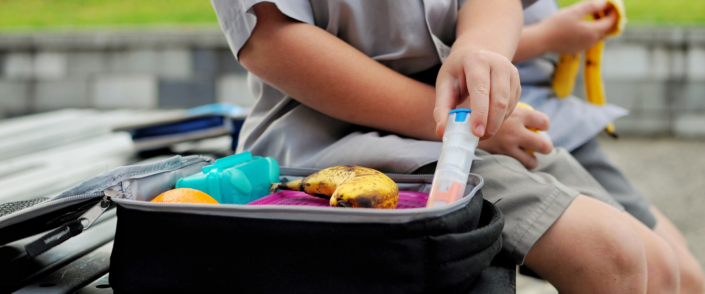As schools have started in January, it is important that CPR and First Aid training is in place to ensure a safe return.
It is vital that the school staff receive full CPR and First Aid training and are confident and are competent and most importantly, are up-to-date with their training.
At Survival CPR we make it so easy for school teachers to learn CPR and First Aid, as our instructors come to the school to teach, in this way, everyone receives the same training and is consistent in how to handle an emergency at the school. It is important that all staff, including school grounds staff and supervisors receive professional training. In this way they are confident to give immediate first aid to someone who is choking, or experiencing an anaphylactic reaction.
It is vital that medication is only administered by staff competent to give it, you must discuss this independently with the school your child attends. In addition, there must be written medical instructions and consent from the parent or legal guardian.
There are many children who attend school with chronic and complex medical conditions. It is therefore essential that school staff work with parents, so that these children are given all the support they need.
Please read here what topics are covered in our Teacher CPR and First Aid Courses.
These are some of the emergencies that children with medical conditions can encounter:
Anaphylaxis
Anaphylaxis is an extremely severe allergic reaction. Reactions usually begin within minutes and progress rapidly, however, they can occur up to 2-3 hours after exposure. In addition, exercise can initiate symptoms a while after exposure to an allergen. Common allergens include food and insect stings. Importantly, the rise of food allergies poses a significant risk for pupils in schools.
Statistics show that children who have a food allergy have reactions that can happen at school. Anaphylaxis can proceed rapidly. In turn, failure to administer adrenaline promptly has been associated with fatalities.
It is really important that parents have ordered additional adrenaline injectors. In addition, teachers must know what to do in case of a medical emergency.
Seizures
A seizure is the medical term for a fit or convulsion. One in twenty people will have a seizure at some point in their lives.
Firstly, electrical activity happens constantly in our brains and controls movements and bodily functions. If there is a disruption to the blood supply to the brain, it can trigger a seizure causing uncontrolled movement of the eyes, limbs and body.
Febrile convulsions can happen to five out of every 100 children under the age of six years old and so are not uncommon.
These are seizures caused by a rising temperature when they are unwell. As a result, seizures are extremely frightening, however these ones are rarely life threatening. Moreover, your child is likely to grow out of them by the time they are about 5 years old. It is important to receive medical advice from your family doctor if your child experiences a seizure, to discover what caused it.
Our instructors are highly experienced medical professionals with experience in ICU, Trauma and Paediatric Trauma. Our courses cater for groups or individuals at our venue or yours.
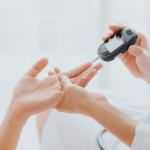
Managing a Diabetic Emergency
A quiet coffee break turned critical in seconds.Trauma nurse Catherine Rodwell shares how quick action—and a teaspoon of syrup—helped save a life during a sudden diabetic emergency. Whether you’re a parent, teacher, or just someone who wants to be prepared, this story is a powerful reminder of why first aid

Clear Vision: Eye-Injury Emergency Steps
Your eyes are delicate and exposed, making them especially vulnerable to sudden injuries — whether from chemical splashes or small foreign objects like dust, metal shavings, or wood splinters. Knowing how to respond quickly and correctly can protect vision, reduce damage, and prevent long-term complications. Here’s a simple guide to

Strap In for Safety: Master Baby Car Seat Use
A correctly installed, ECE-approved car seat is your child’s first line of defense on the road. Misuse or poor installation contributes to preventable injuries every year. This guide reflects South African standards based on ECE R44/04 and R129 regulations, so you can choose, install, and adjust your baby’s car seat
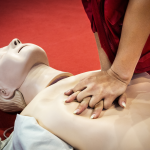
Why Everyone Should Learn CPR
In an emergency, the actions you take in the first few minutes can mean the difference between life and death. Cardiopulmonary resuscitation (CPR) is one of the simplest and most effective ways to help save a life — and yet, many people still don’t feel confident enough to use it
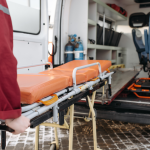
Who & When to Call Emergency Services
In an emergency, every second counts — but knowing when to call for help can make all the difference. Whether it’s a medical crisis, accident, or unexpected health scare, many people hesitate or second-guess themselves in the moment. That delay can be dangerous. The truth is, it’s better to call
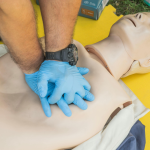
Top 5 CPR Myths Debunked!
When it comes to CPR (Cardiopulmonary Resuscitation), misinformation is everywhere. These myths can prevent people from stepping in to help when every second counts. At Survival CPR, we believe knowledge is power—and in this case, it could be life-saving. Separate fact from fiction and empower yourself to act confidently
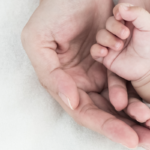
About
Welcome Founded in 2001 by Sister Catherine Rodwell, a seasoned trauma and ICU expert with extensive experience in medical evacuations across Africa, Survival® CPR is dedicated to empowering individuals with life-saving skills. Her mission is to equip parents, nannies, childminders, teachers, and employees with the knowledge and skills to respond

Scholars CPR and First Aid Course
Scholars CPR and First Aid Course Children can save lives! Our Scholars CPR and First Aid Course is tailor-made for young children from the age of 9 to 18. This vital course will enable young and older children to know how to handle an accident or emergency involving children and
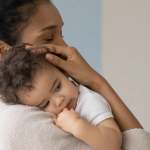
Baby and Child CPR and First Aid Course
Baby & Child CPR and First Aid Course Our Baby and Child CPR and First Aid Course is tailor-made for parents. This vital course will teach a parent how to handle an accident or emergency involving babies and children. You will learn how to handle all First Aid emergencies as


